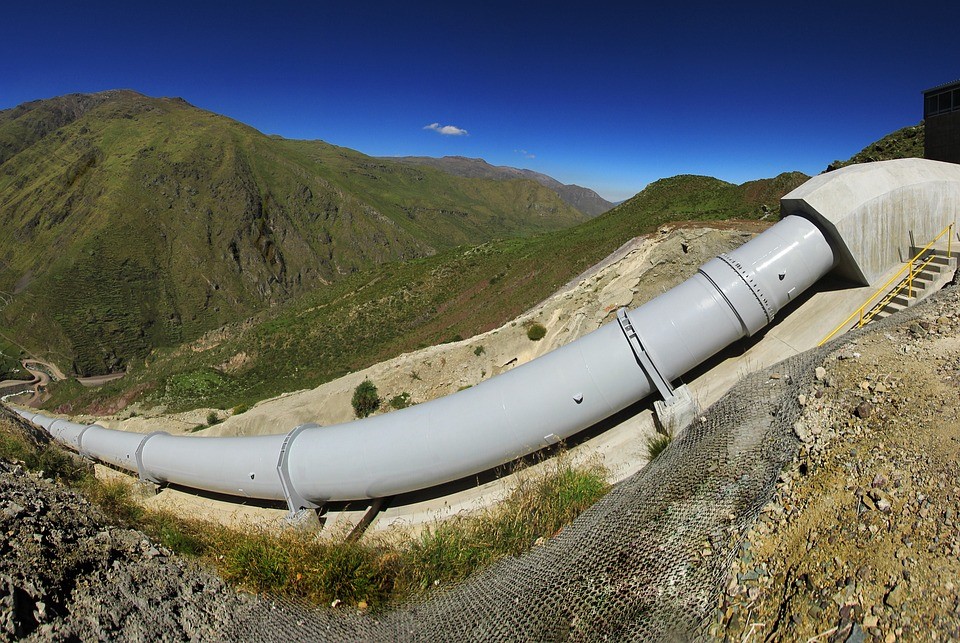Turkey has the fastest growing energy demand among all of the Organization for Economic Co-operation and Development (OECD) states during the last two decades. It ranks second in the world only to China in its increase in electricity and natural gas demand. In a surprise move, Putin recently proposed to develop Turkey into an energy hub for Russia so that its gas may be transited to Europe via Turkey. The government in Ankara says that the versatile structure of its energy strategy and its energy import dependency brings international relations into prominence in this field. In 2022 Turkey had to import 74% of its energy needs. In a positive response to the Russian move, the Turkish Minister of Energy and National Resources Fatih Donmez said in a statement that the project should be seriously evaluated. Turkish President Recep Tayyip also reacted well to the unexpected overture saying that the Trakya region was being evaluated as a potential site for the energy distribution center. According to a Jamestown Foundation report “It is quite clear that the project’s realization also depends on the interests and approaches of the European states, a fact that both Russia and Turkey understand well.”
After Russia’s February 2022 invasion of Ukraine, the European Union (EU) vowed to reduce the supply of energy resources (including gas) from Russia and diversify its energy sources. By October, European Commission President Ursula Von der Leyen announced a 40 per cent reduction in Europe’s purchase of Russian natural gas cent to 7.5 percent of its previous purchases. Nuray alekberli, of Jamestown Foundation, says it is unrealistic to expect a positive attitude to emanate from Europe regarding new pipeline projects that involve Russia, given European opposition to the South Stream pipeline in 2014, Putin’s frequent use of energy blackmail vis-à-vis the EU and the adoption of a much tougher stance toward Russia today. The Biden Administration also supports Europe’s diversification of sources away from its dependence on Russian energy sources.
It is likely to take between three to four years to complete construction of new infrastructure between Turkey and Russia, according to Zongqiang Luo, a senior analyst with Rystad Energy. A pipeline would have to be built in the deep waters of the Black Sea with special production pipes delivered from Germany and Japan. It is uncertain if either country would be willing to supply the physical resources needed, according to the publication Indyturk. The total cost, even if Russia was able to supply the pipes remains an unknown factor given Moscow would face enormous transit and economic issues.
Aydin Sezer, former Turkish trade representative to Russia, says it would be “impossible for Turkey to become a hub with Russian energy resources alone, any extensive development of energy infrastructure in the country will need to have access to other suppliers.” An examination of sources indicates that Ankara is acquiring natural gas from multiple locations, including Azerbaijani and Iran. By 2024 Turkey expects to begin production at the offshore Sakarya gas field. The geopolitical implications extend beyond the Turkish border into the Central Asian states that appear to be supporting Turkey in both gas production and sales. Ankara knows it can’t rely solely on Moscow as an energy source and is laying the groundwork for an expanded base. In Novamber Erdogan announced he planned to discuss the creation of a natural gas hub with the leaders of Azerbaijan and Turkmenistan during his visit to Ashgabat in early December 2022. Then, on December 14, Azerbaijan, Turkey and Turkmenistan signed a memorandum of understanding to further develop energy cooperation and infrastructure among the three countries.
Although Europe is disinclined to buy natural gas directly from Russia, it appears EU countries may be willing to make purchases through a third country, such as Turkey, even if the original energy source is Russia. The long-term continuation of the conflict in Ukraine “could serve to aggravate the attitude of Western countries regarding any Russian involvement in the project,” says Alekberli. Finally, financial considerations are likely to play a key role in determining the hub’s overall viability.
Analysts suggest it is highly likely that other gas suppliers, such as Azerbaijan and the Central Asian states, will support Turkey in this project. Alekberli argues that while political and economic difficulties remain, “the realization of such a project could bring some additional comfort to both buyers and sellers in the region, provided Russian gas does not become the focal point for the proposed hub.” Putin may be counting too heavily on his country’s participation in an energy project that the Central Asian states will likely boycott if Moscow becomes involved.
Daria Novak served in the U.S. State Dept.
